- Home
- David Lubar
Extremities: Stories of Death, Murder, and Revenge
Extremities: Stories of Death, Murder, and Revenge Read online
The author and publisher have provided this e-book to you without Digital Rights Management software (DRM) applied so that you can enjoy reading it on your personal devices. This e-book is for your personal use only. You may not print or post this e-book, or make this e-book publicly available in any way. You may not copy, reproduce, or upload this e-book, other than to read it on one of your personal devices.
Copyright infringement is against the law. If you believe the copy of this e-book you are reading infringes on the author’s copyright, please notify the publisher at: us.macmillanusa.com/piracy.
For Mark and Alison
Contents
Title Page
Copyright Notice
Dedication
Author’s Note
Running Out of Air
Split Decision
Apparent Motives
Feelings
Every Drop
Patterns of Fear
Free Seas
Blood Magic
A Cart Full of Junk
Morph
Whoodoo
The Ex Box
Evil Twin
Starscape Books by David Lubar
About the Author
Copyright
Author’s Note
I am torn. (You will appreciate the delicious irony of those specific words as you make your way through this book.) Part of me feels that these stories need no introduction. I want you to plunge right into the worlds I’ve created and savor the darkness. Another part of me wants to tell you every detail about how this collection came into existence, and to explain the origin of every story.
By way of compromise, I’ll say those things that seem most important. I’ll say them briefly, and then step aside. First, this is not a book for children. Let us be clear about that. My other story collections, easily identified by the humanlike hot dogs on the covers, are perfectly fine for young folks. Those books are popular, and thus they are a hungry beast. I write lots of stories to fill that hunger. At rare and random times, without any plan on my part, a story will emerge that is too dark, too heartless, or, dare I say it, too evil, for my young readers. But the truth is, I love those stories. And I want to share them. So here they are.
There’s really just one other thing I need to tell you. Some of these stories were written long ago. Thus, you will encounter such historical oddities as stores that rent movies on videotape, and people who live in a world without cell phones. I realize that this lack of technology might be more horrifying to some readers than scenes of death, murder, and revenge, but those sensitive souls will just have to deal with it. I thought about modernizing the older stories, but decided against this, because the setting is part of the fabric that creates the mood. I like the stories the way they are. I hope you do, too.
That’s really all I have to say. I think I’ll slither back into the darkness and commit a few more murders—on paper—while you’re enjoying these. Sweet dreams …
Running Out of Air
Deeva sucked air and dug for the strength to hold her place in the middle of the pack. One more lap and it was over. For today, at least. Stay in the middle and you won’t get killed, she thought, risking a glance over her shoulder, where the stragglers tailed out—one pair running slowly with awkward gaits, two more barely jogging, and one last girl desperately swinging her arms in a pathetic attempt to make her walk look like a run.
“Move it, you lazy cows!” Ms. Pelham screamed, cutting across the track toward the laggers. “This is supposed to be exercise.” She grabbed the whistle that hung from her neck, and blew an ear-piercing blast.
“They should fire her,” Kate Wilson muttered as she ran just ahead of Deeva.
They’ve tried, Deeva thought. She’d heard stories. They’d all heard stories. Each fall, the first thing every girl at Smithfield High did was check her schedule to see which gym teacher she’d been assigned. Deeva was zero for two, drawing Ms. Pelham last year, and again this year. Across the field, near the bleachers, Ms. Bright was teaching her class an Irish dance step.
It was almost comic. Or cosmic. Bright and Pelham. Heaven and hell. Good and evil. Ms. Bright smiled. She encouraged all the girls. She baked cookies. Ms. Pelham snarled. She yelled at every student, except for the few star athletes who could do no wrong. But she saved a special level of venom for the slackers—the fat, the weak, the uncoordinated, the sickly. If you couldn’t run laps, Ms. Pelham would eat you up. Three times a week.
Deeva finished her last lap, then turned to watch the final scene of the drama.
“You’re gonna fail!” Ms. Pelham screamed. She waved her stopwatch at the girls. “You miserable, lazy cows. You’re not even trying.”
The slow runners, Debby Muñez and Tonya Hark, stumbled in. Then the joggers, Amber Weiss and Tabitha Jordan, made it across the line. Behind them, the walking, gasping, red-faced mess of Betty Lozer staggered toward the finish.
“Run!” Ms. Pelham shouted. She glanced briefly away to lash the rest of the class with her favorite phrase. “Keep your nose where it belongs.”
Betty moved her lips, but Deeva was sure the girl didn’t have the air for speech. Even so, she knew what Betty was trying to say. Asthma. One word. An explanation that any sane person would understand. Asthma.
But Deeva had seen Ms. Pelham dismiss all infirmities short of broken bones as nothing more than pathetic excuses. The invisible remained unacceptable. Asthma wouldn’t stop a girl who really wanted to run. Deeva could imagine Ms. Pelham walking through a plague-struck village during the Dark Ages, screaming, Get up! On your feet, you lazy fakers! at the dying who littered the streets.
Deeva let out her own breath as Betty finished the lap. Her sense of injustice was tinged with relief. Betty took a lot of the heat, leaving less of Ms. Pelham’s attention for the others. Deeva’s relief was tinged with guilt. Someone should do something about this. But those words, Keep your nose where it belongs, hovered at the edge of her thoughts like a wasp.
The class filed inside as Ms. Pelham berated them for their poor display of soccer skills. “We’re going to keep drilling until you get it right,” she told them. “We’ll do it until you drop, if that’s what it takes.”
Deeva got her clothes from her locker. On the bench just across from her, she saw the four other laggers clustered around Betty. The girl was a sobbing, wet wreck now, sucking on her inhaler and drawing wheezy gasps of air.
“Get a doctor’s note,” Amber told her.
Betty nodded, then wiped her nose with her sleeve.
“You have to do something,” Tabitha said.
“Friday,” Betty said.
“You have an appointment?” Amber asked.
“Yeah.”
“Hang in there,” Tabitha said. “Just one more class. Then you’re free.”
The talk died for a moment as Ms. Pelham walked by, holding a sheet of paper and a roll of masking tape. A moment later, she passed by again in the other direction.
Deeva shoved her gym clothes in her bag. Through the glass window that separated the coaches’ area from the locker room, she could see Ms. Pelham at her desk, eating grapes from a large plastic produce bag. She seemed to live on fruit, though Deeva was sure that when nobody was looking, Ms. Pelham gorged on burgers and fries.
On the way out of the locker room, Deeva passed the spot where Ms. Pelham had taped up the latest grades. The teacher was murder on grade-point averages. Next to slow runners, she seemed to hate good students the most. The smart, the ambitious, the college bound were at her mercy. The best and the brightest served only to fuel her rage. She rubbed in the damage with weekly grade postin
gs, handwritten and secured to the wall with masking tape, a dangling display of low numbers laid out for all the world to see.
Deeva winced at the 83 next to her name. She knew she deserved better, but there wasn’t much she could do about it. Ms. Pelham had branded her as a low 80s student, and that’s where she’d stay, no matter how hard she tried or how well she played.
Betty walked over and leaned toward the sheet. She gasped, then said, “That’s not fair.”
It was worse than unfair, Deeva thought. Ms. Pelham had given Betty a 59. Failing. But tauntingly close to passing. Worse, the grade threatened to ruin Betty’s summer with a makeup gym class.
The marking period ended on Friday. Even with a doctor’s note for next marking period, there was nothing that could erase the F that Betty was about to get.
Deeva watched Betty walk over to the coaches’ room. Don’t do it, she thought as she drifted closer.
Betty opened the door. “What can I do to raise my grade?” she asked.
Ms. Pelham looked up from her snack and regarded Betty with contempt. “Try harder.”
“I’m trying as hard as I can,” Betty said.
“Then you’ll fail.”
Betty walked off and joined her waiting friends.
Deeva headed out, too. At least gym was over for the day. And at least she was passing.
* * *
They played soccer again on Wednesday, though a damp chill cut through the air. Deeva inhaled slowly. Fast breaths hurt her lungs. She noticed that Betty kept glancing at the track.
When Ms. Pelham blew the whistle and sent them to do their laps, Betty asked the teacher, “How fast do I have to go to pass?”
Ms. Pelham told her.
As Betty fell behind the pack, her four friends stayed with her, encouraging her.
Deeva dropped back toward the rear of the main group. It was safe. She knew Ms. Pelham wouldn’t be watching her today.
Betty’s gasps grew louder as she struggled to run.
Deeva clenched her teeth, wishing there were some way she could lend strength to Betty. Or sanity. Just stop, she thought. There weren’t any degrees of failure here. A 50 was no worse than a 59. Even a zero was no worse.
As Betty ran, Ms. Pelham kept waving her stopwatch. “You’re way behind,” she said. “If you don’t hurry, you’ll never make it.”
Deeva winced as Betty put on a burst of speed. It lasted for only a couple of steps. Betty stumbled and fell to the cinders. She pushed herself to her feet, took two more steps, then fell again.
She lay on the track, her chest heaving, one cheek pressed to the ground, her mouth open like a dying fish.
Ms. Pelham walked away. Betty’s friends rushed over to her.
“She can’t breathe!” Amber yelled.
Ms. Pelham shook her head in disgust. “Nikki,” she called to her favorite pupil, “go get the nurse.”
Nikki ran toward the school. Ms. Pelham walked back to Betty and stared down. Her expression showed nothing but annoyance. “Finish your laps!” she screamed at Betty’s friends. “You’ve already lost points. Last one in gets an F.”
The girls dashed off.
Deeva finished running, then huddled with the others, watching as the nurse came. And then the ambulance.
The story spread rapidly, growing and changing, mutating the way all school events do. But two points remained relatively unaltered: Betty was in bad shape. And Ms. Pelham wasn’t in trouble. She’d told the administration that she did everything she could to keep Betty from overexerting herself, but the girl just wouldn’t listen.
The next day, Deeva stayed late to audition for the school play. At one point, as she waited her turn, she saw four figures pass by in the hallway. Betty’s friends.
There was something about the way they walked that caught her attention. After Deeva read her lines, she left the auditorium and headed toward the gym.
As she reached the end of the corridor, she heard voices coming from the locker room. She slipped the door open and moved inside, ducking down and staying close to the lockers. Ahead, she saw five clustered figures—Debby, Tonya, Amber, and Tabitha. At the center was Ms. Pelham.
Her posture seemed odd. It took Deeva a moment to realize why. Ms. Pelham’s hands were behind her back. In the light spilling from the coaches’ room, Deeva saw that the gym teacher’s wrists had been bound with masking tape. The office showed signs of a brief struggle. The teacher’s chair was turned over. Her desk lamp was on its side. An apple and a handful of grapes were spilled across the desk. A couple of stray grapes had fallen to the floor.
“You girls are in big trouble,” Ms. Pelham said.
“Hey, we can lie just as good as you,” Tonya told her. “Nobody knows we’re here.”
“It’s our word against yours,” Amber said, tossing the roll of masking tape up in the air and catching it. “Nobody would believe nice girls like us would do anything bad. And we wouldn’t. Not normally. But you’re a special case.”
The girls seemed to be waiting for something. Deeva sat and made herself comfortable. Time passed. She heard faint sounds through the wall as the boys came in from football practice, followed by more noise as they left the building. Soon after that, Debby slipped out and went to the back door, opened it briefly, then returned to the coaches’ room. “It’s clear. Come on. Let’s go.” She gave Ms. Pelham a push.
Deeva crept outside, keeping far enough back so they wouldn’t spot her. The girls took Ms. Pelham to the track.
“It’s very simple,” Debby said. “We’re going to run a race. Just one lap. You win, we cut off the tape.”
Ms. Pelham laughed. “A race? Against you girls? It doesn’t matter if my hands are tied. I’m an athlete. A real athlete. Not like you girls, who can’t even—”
“On your marks,” Amber said.
The other three girls turned to face forward on the track.
Ms. Pelham shook her head. “You are in so much trouble.” A smile crossed her lips, as if she was already planning her revenge, or perhaps relishing her coming victory on the track.
“Get set,” Amber said.
The girls crouched in poor imitation of sprinters.
“When this is over, you’re all going to suffer,” Ms. Pelham said. She leaned at the waist and put one foot forward. “But first, I’m going to make you eat dust. Stupid cows.”
“Wait. I almost forgot.” Amber stuck her hand in her pocket. Deeva heard a crinkling sound. Then Amber reached toward Ms. Pelham and slipped something over her head.
Deeva smothered a gasp as she watched Amber strip a length of masking tape from the roll and fasten the plastic produce bag around Ms. Pelham’s neck.
“Go,” Amber said.
The other three girls jogged off.
Ms. Pelham froze from the neck down. Her head swiveling rapidly from Amber to the runners, who were already widening their lead.
“Go,” Amber said again, as if speaking very patiently to someone who wasn’t bright at all.
Deeva saw the bag puff out as Ms. Pelham exhaled, then cling to her face as she drew a panicked breath. The clear plastic, fogged with moisture now, flattened on either side of her nose.
Deeva opened her mouth. One shout would put a stop to this. As she looked at the figures on the track, scenes from the past flooded her mind, along with a phrase she’d heard shouted far too often. Keep your nose where it belongs, Deeva thought.
Taking a slow, deep breath of the cold night air, Deeva turned and walked back to the locker room. Behind her, the crunch of feet on cinders faded, like the tail end of a dying gasp.
Split Decision
“So, New York or Chicago?”
“I don’t know,” Greg said. “I think you’re crazy going to either place. You can’t run away.”
“Sure I can,” I said. “All my dad cares about is that stupid woman he married. I can’t believe she’s going to have a baby. I’m out of here. The only question is—New York or Chicago?”
“Ask Spooky Sheila,” Greg said.
“No way. She creeps me out.” I glanced at the back of the room toward Sheila Delphini’s desk. She was playing with her hair, braiding and unbraiding several strands, and paying no attention to the teacher. Not that I was paying any attention, either. Why take notes when you aren’t planning to stick around?
“But she’ll tell you what will happen,” Greg said. “I’ve heard she’s got some kind of way to see the future.”
I’d heard the same rumors. Kids had whispered stories about Sheila for years. I wasn’t sure whether I wanted to believe any of that stuff. But it couldn’t hurt to see what she thought about my problem. When the bell rang at the end of the period, I walked over to her desk.
“I’ve got a question,” I said.
She raised her eyes up toward me without lifting her head. Her irises were so light blue, they almost seemed clear. A chill ran through my body and along my arms.
“You’re going to split,” she said.
“How’d you know?”
She didn’t answer. Maybe she’d heard me talking to Greg. I’d have to be more careful. If my dad found out, he’d murder me.
“Should I go to New York or Chicago?”
She reached out and grabbed my hand. Then she closed her eyes. She took a long, slow breath. I waited. She breathed. Behind me, I heard people shuffle in for the next class. Just as I was about to pull my hand away, her body jerked like she’d been slashed across the back with a whip. Her fingers dug into my palm. She opened her eyes but didn’t say anything.
“Tell me.”
She released my hand. “The future can hurt.”
“I don’t care. Tell me.”
“New York if she has a boy. Chicago if she has a girl.”
It took me a moment to realize what she was talking about. “My dad’s wife?” I couldn’t bring myself to call her my stepmother.
Sheila nodded. A single tear trickled from her left eye. She was starting to creep me out.
“But I don’t want to wait.…”

 Teeny Weenies: My Favorite President
Teeny Weenies: My Favorite President Teeny Weenies: The Intergalactic Petting Zoo
Teeny Weenies: The Intergalactic Petting Zoo Teeny Weenies: The Eighth Octopus
Teeny Weenies: The Eighth Octopus Emperor of the Universe
Emperor of the Universe Teeny Weenies: The Boy Who Cried Wool
Teeny Weenies: The Boy Who Cried Wool Teeny Weenies: Fishing for Pets
Teeny Weenies: Fishing for Pets Teeny Weenies: Freestyle Frenzy
Teeny Weenies: Freestyle Frenzy Numbed!
Numbed!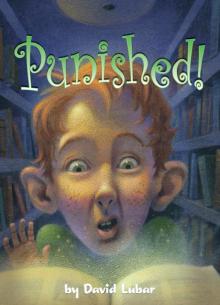 Punished!
Punished!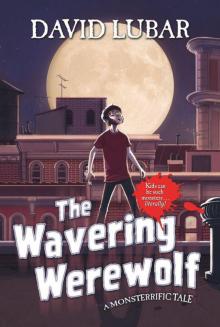 The Wavering Werewolf: A Monsterrific Tale (Monsterrific Tales)
The Wavering Werewolf: A Monsterrific Tale (Monsterrific Tales)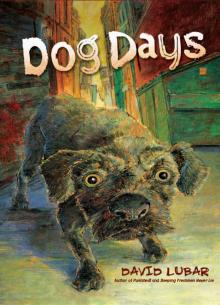 Dog Days
Dog Days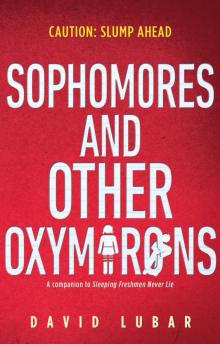 Sophomores and Other Oxymorons
Sophomores and Other Oxymorons The Psychozone
The Psychozone My Rotten Life
My Rotten Life Invasion of the Road Weenies
Invasion of the Road Weenies In the Land of the Lawn Weenies
In the Land of the Lawn Weenies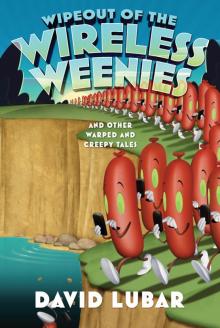 Wipeout of the Wireless Weenies
Wipeout of the Wireless Weenies Ghost Attack
Ghost Attack Check Out the Library Weenies
Check Out the Library Weenies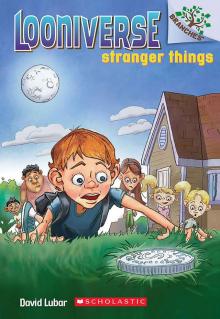 Looniverse #1: Stranger Things (A Branches Book)
Looniverse #1: Stranger Things (A Branches Book)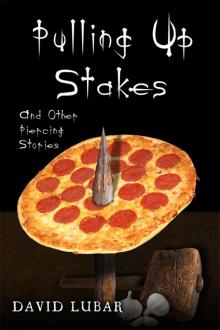 Pulling up Stakes and Other Piercing Stories
Pulling up Stakes and Other Piercing Stories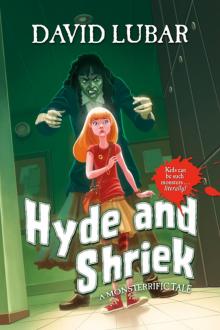 Hyde and Shriek
Hyde and Shriek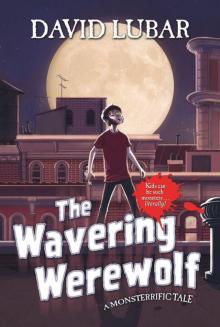 The Wavering Werewolf
The Wavering Werewolf Dead Guy Spy
Dead Guy Spy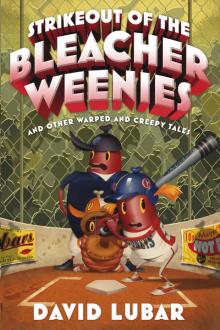 Strikeout of the Bleacher Weenies
Strikeout of the Bleacher Weenies The Big Stink
The Big Stink The Battle of the Red Hot Pepper Weenies
The Battle of the Red Hot Pepper Weenies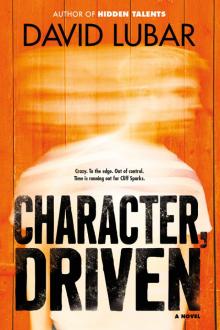 Character, Driven
Character, Driven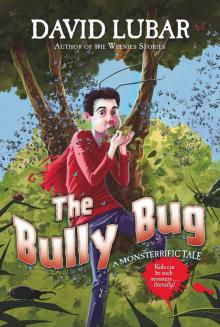 The Bully Bug
The Bully Bug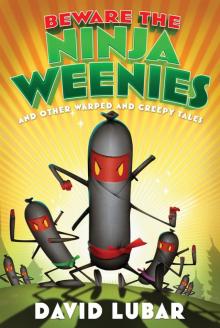 Beware the Ninja Weenies
Beware the Ninja Weenies Extremities: Stories of Death, Murder, and Revenge
Extremities: Stories of Death, Murder, and Revenge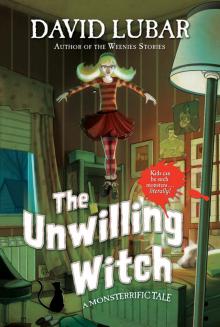 The Unwilling Witch
The Unwilling Witch Goop Soup
Goop Soup Lay-ups and Long Shots
Lay-ups and Long Shots The Gloomy Ghost
The Gloomy Ghost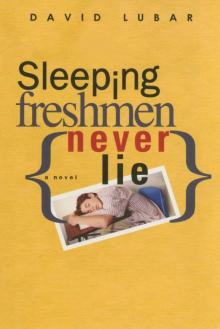 Sleeping Freshmen Never Lie
Sleeping Freshmen Never Lie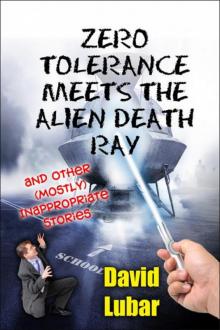 Zero Tolerance Meets the Alien Death Ray and Other (Mostly) Inappropriate Stories
Zero Tolerance Meets the Alien Death Ray and Other (Mostly) Inappropriate Stories Attack of the Vampire Weenies
Attack of the Vampire Weenies Enter the Zombie
Enter the Zombie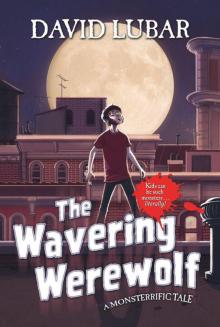 The Wavering Werewolf_A Monsterrific Tale
The Wavering Werewolf_A Monsterrific Tale The Curse of the Campfire Weenies
The Curse of the Campfire Weenies The Vanishing Vampire
The Vanishing Vampire